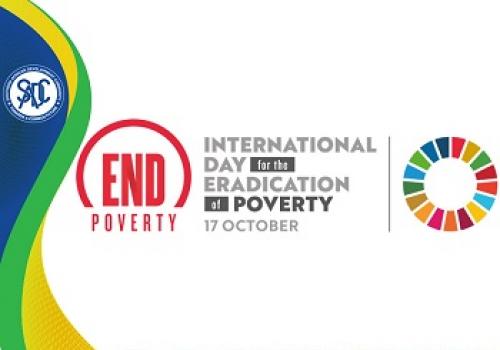The Secretariat of the Southern African Development Community (SADC) has called for concerted efforts and inclusion of all actors to end poverty in the Region as the World commemorates International Day for the Eradication of Poverty today.
This year’s theme, answering the Call of October 17 to end Poverty - A Path Toward Peaceful and Inclusive Societies, serves to remind the world about the importance of the values of dignity, solidarity and voice underscored in the United Nations Call to Action to end poverty everywhere.
In a statement to mark the day which falls on 17th October every year, the Secretariat said it is worrisome that half of the SADC population lives below poverty line, owing to, among other things, high levels of unemployment and underemployment in the Region.
“As we move forward with the implementation of the Revised SADC Regional Indicative Strategic Development Plan (RISDP) 2015-2020, which is SADC development blue print, alongside the African Union Agenda 2063 and the United Nations Agenda 2030 for Sustainable Development, attention should be paid to the importance of ‘Leaving No One Behind ‘” reads the statement, adding that Member States need to pay special attention to the voices of the most marginalized segments of society, including women, the youth and people living with disabilities.
“They should be at the table when discussing development issues that affect them,” adds the statement.
The Secretariat also calls for the promotion of regular and effective participation of the private sector, civil society and other partners such as the academia and media in the development process. Specifically, the statement calls on the private sector to embrace the ideals contained in the SADC Industrialisation Strategy and Roadmap 2015-2063 to assist the national governments to eradicate poverty.
Since the early 90s, ending poverty and reducing inequalities have been at the core of governments, especially in developing countries. In September 2015, United Nations Member States adopted a landmark and ambitious global Agenda 2030 for Sustainable Development with 17 Sustainable Development Goals (SDGs) whose overarching goal is to end poverty in all its forms, everywhere by the year 2030 through strategies that guarantee the fulfillment of all human rights and ensure no one is left behind.
At the core of SADC policies and programmes as reflected in the SADC Treaty is ending poverty through deeper regional integration and sustainable economic growth and development.

